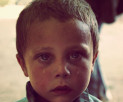Gap shocks Inspectorate of Education
‘That startled me’, inspector general Monique Vogelzang begins her report, titled, ‘The state of education’ (‘De staat van het onderwijs’). ‘Because this is how it goes: for those with equal intelligence, the choice of school and educational path is increasingly determined by the family you come from. The education of your parents plays the leading role in this.’
Talent remains underutilised, the inspectorate feels. ‘The inequality of opportunities in education is increasing. In the last few years, the differences have increased between pupils with parents who are highly educated and those with parents who are less educated.’
There is no single identifiable cause – rather, it is the result of the interaction among many things, according to the report. Highly educated parents are more involved and deliberately choose better schools, and their children go to homework classes more often. Teachers and school leaders also play a role: they often unknowingly have higher expectations of pupils with highly educated parents.
‘Shocking’
Student organisations found that conclusion shocking. ‘Everyone deserves equal chances in education and these are alarming signs that the education system is failing to provide them’, says Linde de Nie of the Dutch National Student’s Association (ISO). ‘Pupils must have better guidance on their way to higher education. Higher education and secondary education should work closely together.’
‘Dutch higher education is for everyone’, Stefan Wirken of the National Student Union (LSVb) says. ‘As a society, we have to take responsibility for ensuring that higher education remains accessible for everyone.’
Selection
The union is worried that measures such as the new loan system and selective admissions will only make the gap greater. ‘This year alone there were 8,400 fewer students choosing to study at a university of applied sciences. In Amsterdam, which is the most expensive city for students, the decrease in students is even greater, relatively speaking’, says Wirken.
D66 (Democratic Party) does not want any more cuts to be made to education for children with learning difficulties. ‘The secretary of state is only increasing this division in education further with these cuts. Getting a good education is no longer dependent upon your talents, but rather upon your background’, says D66 MP Paul van Meenen.
Photo: Flickr / Musa Musavi






